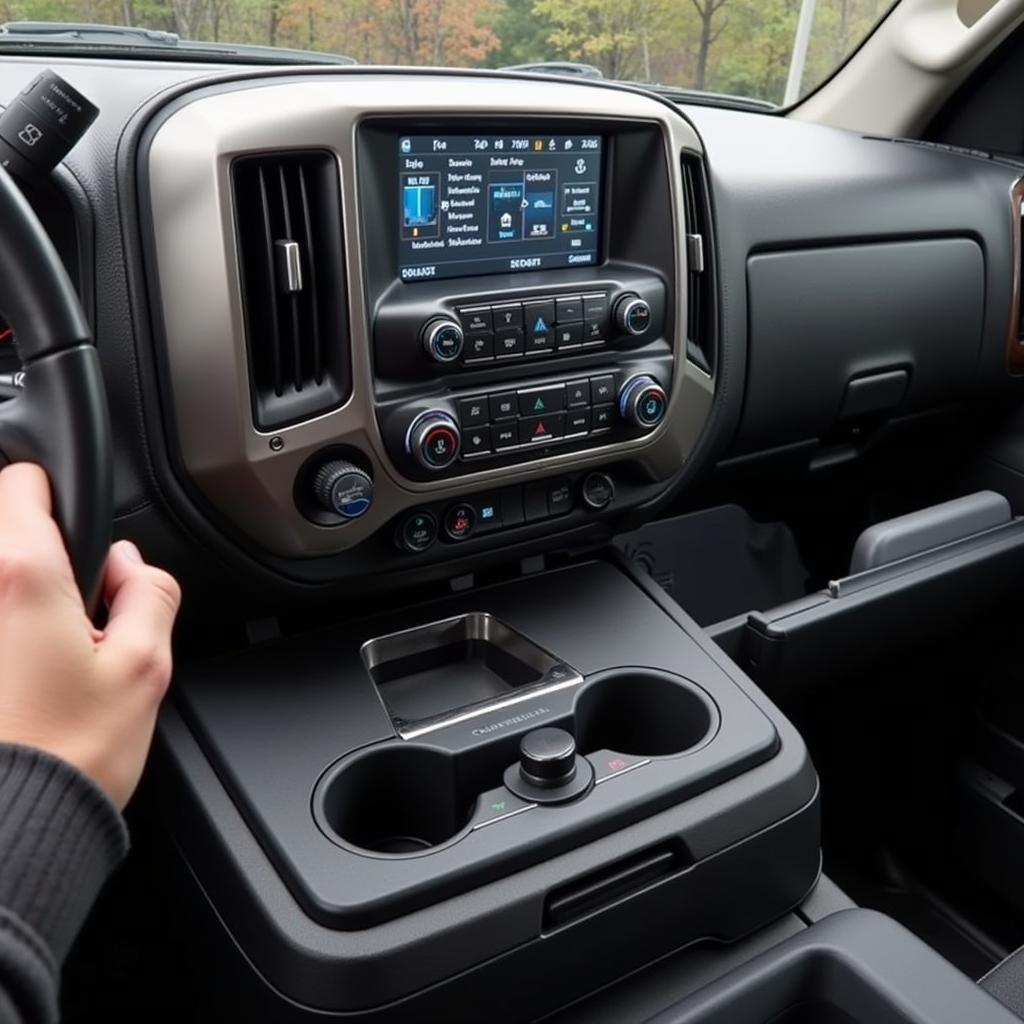The brake warning light on your 2001 Honda CRV is a crucial safety feature that shouldn’t be ignored. When illuminated, it signals a potential issue with your braking system that requires immediate attention. This article will delve into the common causes of the brake warning light appearing on a 2001 Honda CRV and guide you through possible solutions.
Understanding Your Honda CRV Brake System
Before we jump into the causes, it’s helpful to understand the basics of your Honda CRV’s braking system. It’s primarily composed of hydraulic components that use brake fluid to transmit force from the brake pedal to the wheels, ultimately slowing or stopping your vehicle. The brake warning light is designed to activate if it detects a problem within this system, such as low brake fluid or a malfunctioning component.
Common Causes of a Honda CRV 2001 Brake Warning Light
Here are some of the most frequent reasons why your 2001 Honda CRV’s brake warning light might be on:
- Low Brake Fluid: The most common culprit is low brake fluid, often due to worn brake pads or a leak in the system.
- Worn Brake Pads: Brake pads naturally wear down over time. When they become too thin, the brake warning light is triggered.
- Faulty Brake Caliper: The brake caliper houses the piston that pushes the brake pads against the rotor. A sticking or leaking caliper can illuminate the warning light.
- Brake Fluid Leak: A leak anywhere in the braking system, whether in the lines, hoses, or master cylinder, will cause a drop in brake fluid pressure and activate the warning light.
- ABS Issue: While less common, a problem with the Anti-lock Braking System (ABS) can also trigger the brake warning light. This might be due to a faulty ABS sensor or control module.
Troubleshooting the Brake Warning Light
1. Check the Brake Fluid Level
Park your CRV on level ground and locate the brake fluid reservoir under the hood. The reservoir is usually a translucent plastic container with “DOT 3” or “DOT 4” markings. Check the fluid level – if it’s below the minimum mark, you’ll need to add brake fluid.
2. Inspect for Leaks
While checking the fluid level, visually inspect the brake lines, hoses, and around the master cylinder for any signs of leaks. Leaking brake fluid is often a dark, oily substance.
3. Check the Brake Pads
If the fluid level is fine and there are no visible leaks, the next step is to check the brake pads. You can usually visually inspect the pads through the spaces between the wheel spokes. Look for significant wear – if they appear thin, it’s time for a replacement.
4. Seek Professional Help
If you’ve checked the brake fluid, inspected for leaks, and examined the brake pads, and the warning light persists, it’s crucial to seek professional help. Issues like a faulty brake caliper or an ABS problem require specialized knowledge and tools to diagnose and repair.
What if the Brake Warning Light is Flashing?
A flashing brake warning light usually signifies a more serious problem, often related to the hydraulic system or the ABS. This requires immediate attention, as it could indicate a significant loss of braking ability.
Preventing Future Brake Warning Light Issues
Regular maintenance is key to preventing brake problems.
- Routine Inspections: Have your brakes inspected by a qualified mechanic at least once a year or every 12,000 miles.
- Timely Fluid Flushes: Brake fluid should be flushed and replaced every 2-3 years to prevent corrosion and maintain optimal braking performance.
- Quality Parts: Always use high-quality brake pads, rotors, and other brake components for optimal performance and longevity.
Conclusion
The brake warning light on your 2001 Honda CRV is a critical safety feature that should never be disregarded. By understanding the common causes, troubleshooting steps, and preventative measures, you can ensure the safety and reliability of your vehicle’s braking system. However, remember that attempting to diagnose or repair complex brake issues yourself can be dangerous. If in doubt, always consult with a qualified mechanic for a thorough inspection and professional repair.

